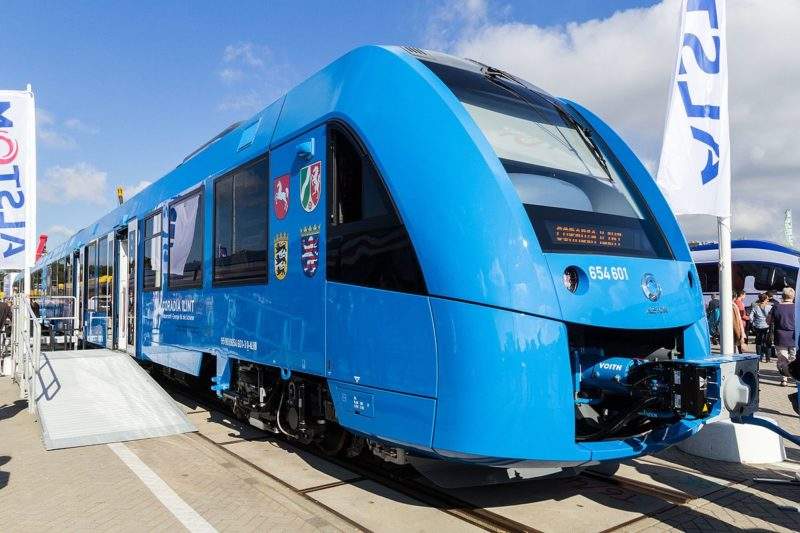
The German Ministry for Transport and Digital Infrastructure has awarded Siemens, Canadian fuel cell manufacturer Ballard Power Systems, and RWTH Aachen University €12 million to develop more efficient fuel cells for German trains.
The organisations will work specifically on hydrogen-powered cells which draw hydrogen atoms through an anode which strips them of their electrons, giving them a positive charge. The negatively charged electrons are diverted through an electrical circuit to provide power, in this case to a train, before re-joining the hydrogen atoms and oxygen pulled in from the air, to produce water, the reaction’s sole waste product.
In November 2017, Siemens and Ballard announced an agreement to develop a modular and scalable 200kW fuel cell system, which would be integrated into Siemens’ Mireo electric trains by 2021. The trains can reach speeds of 99mph, and their aluminium composition means they reduce energy use by 25% compared with earlier Siemens trains.
“Our cooperation with Ballard marks a decisive step being taken to replace diesel-powered rail vehicles with emission-free vehicles in order to provide sustainable and climate-friendly mobility over the long-term,” said Sabrina Soussan, CEO of the Siemens mobility division.
The funding is part of the ministry’s National Innovation Programme for Hydrogen and Fuel Cell Technology (NIP), which is organised by the National Organisation for Hydrogen and Fuel Cell Technology (NOW). The project will see the government invest €250m into hydrogen fuel cell technology by 2019, to ensure ‘the continuation of research and development in the area while simultaneously addressing the pressing issue of market activation’, according to NOW’s website.
“We are seeing a rapid rise in demand for carbon dioxide-free fuel cell technology,” said Randy MacEwen, president and CEO of Ballard. “This applies to all sectors of passenger and freight transport, whether it is trains, trams, buses or trucks.”
Germany aims to reduce greenhouse gas emissions by 40% by 2020 and 95% by 2050 compared to 1990 levels, and expects renewable energy to account for 60% of all energy consumption by 2050. The NIP-backed hydrogen fuel cells will build on the Alstom iLint trains, French vehicles which use hydrogen fuel cells, which are scheduled to be piloted in Lower Saxony later this year.



